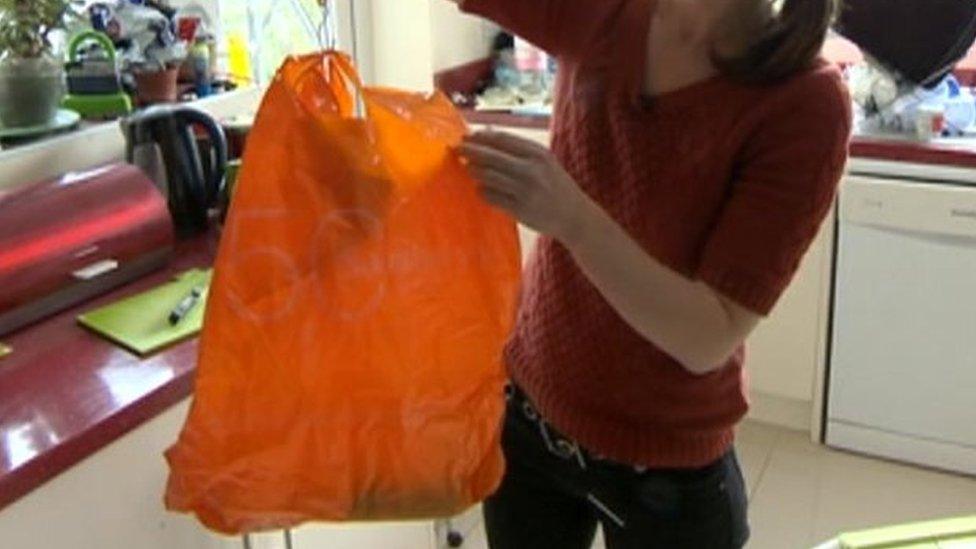Climate emergency: What are Welsh businesses doing?
- Published
Carys Griffiths creates bikinis made with discarded plastics, fishing nets and discarded textiles
In April, the Welsh Government declared a "climate emergency", with the environment minister saying she hoped it would trigger "a wave of action".
Opposition politicians said they wanted to wait to see what action the government would actually take.
But what are people in Wales doing now to make a difference to their environment?
Here are three businesses trying to tackle climate change and pollution in their own way.
Bikinis made from plastic
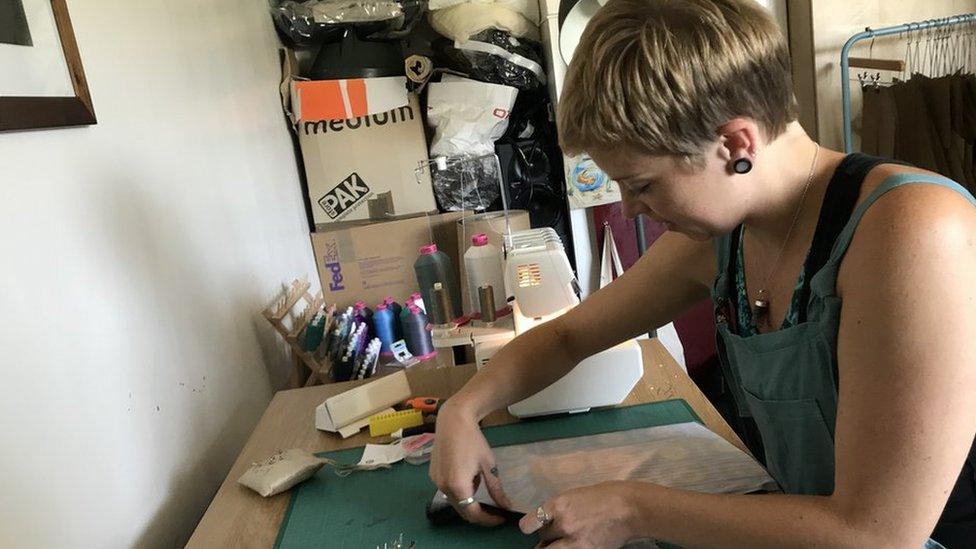
Carys Griffiths designs bikinis made from plastic
"I love the fact that I can take something that's been washed up on the beach and create something that people love to wear and feel comfortable in," said designer Carys Griffiths.
The 34-year-old from Loughor, Swansea, creates her bikinis from Econyl, a fabric made from discarded plastics, fishing nets and discarded textiles.
Surfer Ms Griffiths, who started her business Fall Bay Designs last year, was very aware of pollution after picking up plastic during time on the beach.
"A lot of the time I'd be running on the shore, and you'd find a lot of the plastic that's been washed up or been left behind by people who were here during the day," she explained.
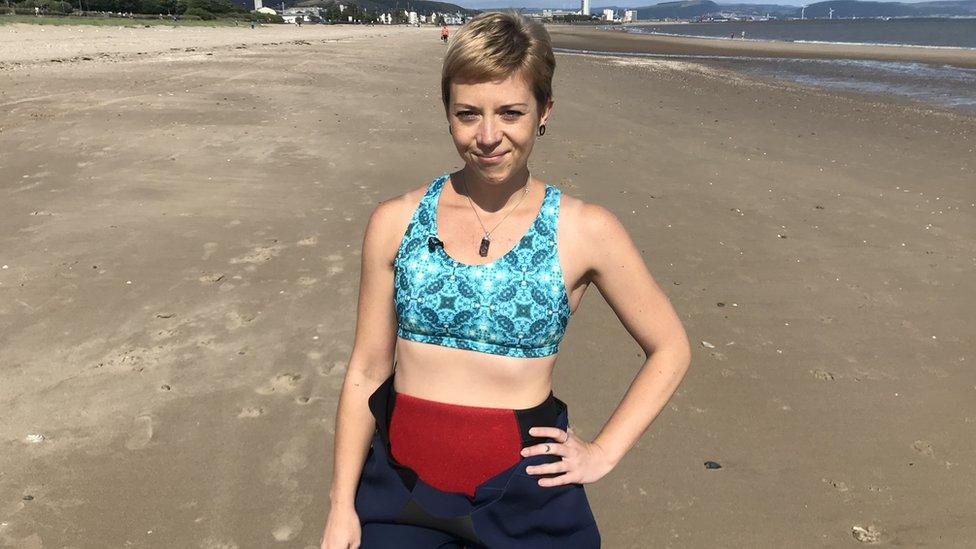
The bikinis are made using a zero-waste pattern cutting technique
"I think surfers are naturally more inclined to be more environmentally conscious about what they buy and what they use generally.
"I've always been like that from a young age, and I just thought it would be a good combination really."
The bikini tops take her about two and a half hours each to create, while the bottoms can take up to an hour and a half, and are created using a zero-waste pattern cutting technique.
"This minimises fabric waste and ensures unique difference as no two pieces will ever be completely identical.
"The prints are also designed by me from my drawings, paintings or photography.
"I'm excited to see where it's going to lead, and I'm willing to dig my heels in and make sure that it does work."
The 'milk round' for your household products
Two women in Monmouthshire are trying to make going plastic-free more convenient, delivering products to doorsteps and taking away empty glass containers before sterilising and re-using them.
"We wanted to do something a little bit different for people who can't get to those eco-refill shops, or maybe can't get out of their houses, or are working long hours," said Little Green Refills co-founder Beth Oram, 43.
"Hence home deliveries - people don't need to be in... It just makes life easier for those people and means they can be included in this."
Ms Oram and her business partner Ellen Hinton, 39, work out of a garden shed, refilling bottles and organising orders.
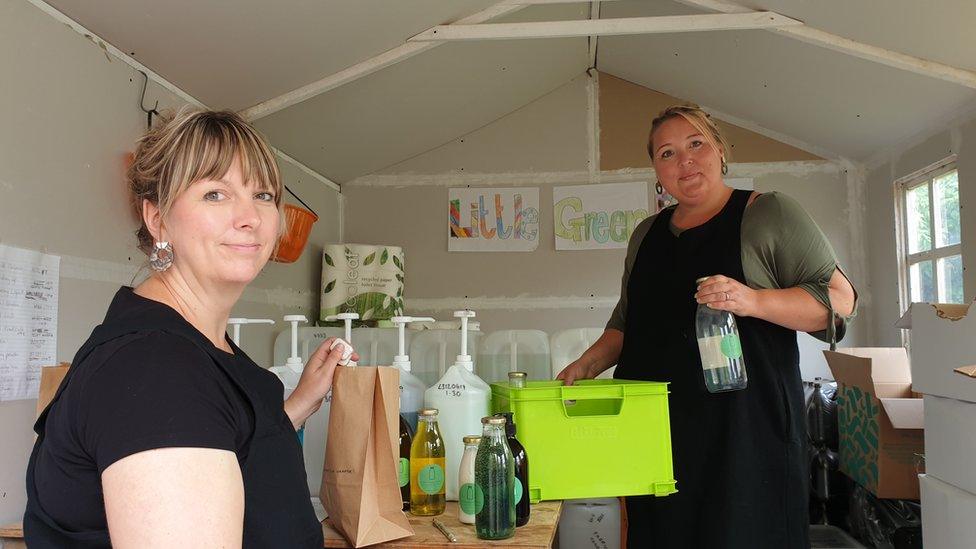
Beth Oram (left) and Ellen Hinton (right) work out of a garden shed
"I think the best way of explaining it is to think about a milkman," said Ms Oram.
"We deliver household cleaning products, laundry products, shampoos, conditioners, plus a whole range of extras in glass bottles to our customers."
In a bid to cut costs, they offer a higher-end organic range of products, and cheaper line for those who would prefer to pay less.
"One of the big driving forces for us was to give something affordable to people - I think quite often going plastic free can come with a price tag," Ms Oram said.
Customers pay a £5 deposit to cover the cost of the glass, no matter how many products they order.
In order to reduce their carbon footprint, they deliver to collection points, so they are not travelling door to door.
"We're trying to support other small local businesses, where customers can go and collect their orders," Ms Oram explained.
"Hopefully while they're there they'll maybe stay for a cup of tea and a cup of coffee, so it's a two-way process."
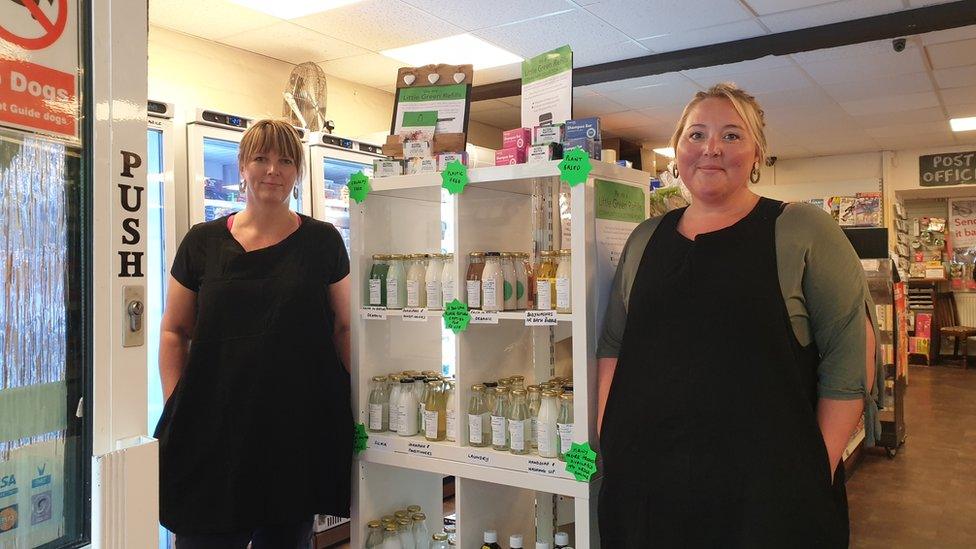
Little Green Refills have collection points where customers can collect their orders
The three-month-old business has expanded rapidly, and is starting to "edge towards Cardiff," said Ms Oram.
"People want this and it needs to be the way forward."
The zero-waste store with a difference
"We want to make sure everybody can access zero-waste at a price point that's convenient for them," said Amy Greenfield.
"I don't come from a background that's particularly affluent, but it's something that's important to me."
Ms Greenfield, 37, runs social enterprise Awesome Wales in Barry with Stuart Burnell.
Customers can bring their own containers and fill them up with as much food as they like, before weighing it and paying.
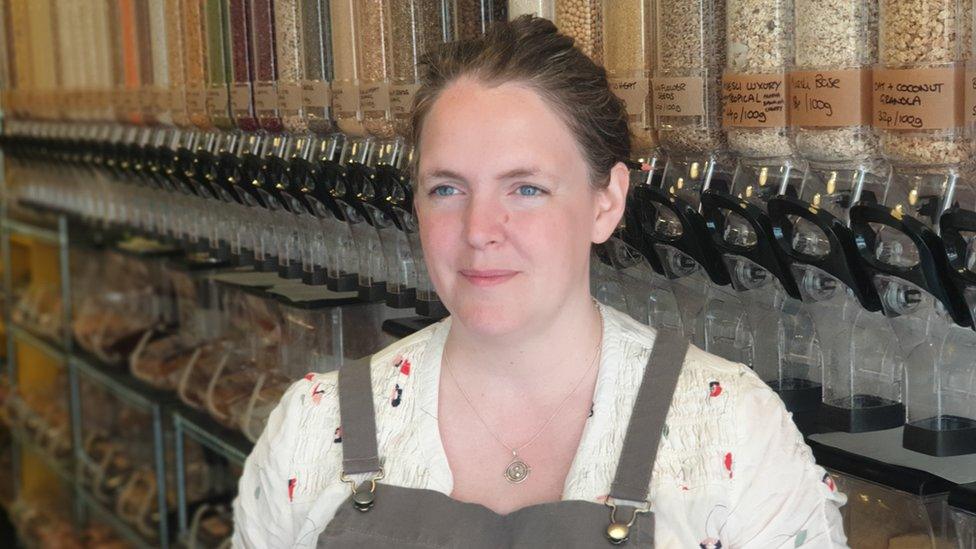
Amy Greenfield runs eco-refill store Awesome Wales
This can cut costs and food waste as a specific amount can be bought.
Besides wanting to make eco-friendly products available to those of all backgrounds, they are planning to run workshops in "zero-waste hacks".
These include repair shop classes, bread baking and even making your own dishwasher tablets.
Creating the tablets from scratch is cheaper, natural and fun for children, explained Ms Greenfield.
The store has also had a "huge response" from local schools, with plans for a breakfast club to purchase metal straws because students were unhappy using plastic.
Another school wants to hold maths lessons in there to teach measurements.
When asked why they chose to open the store last month, Ms Greenfield said: "We thought 'well, if not now then when? If not who, then us' - and we just went for it."
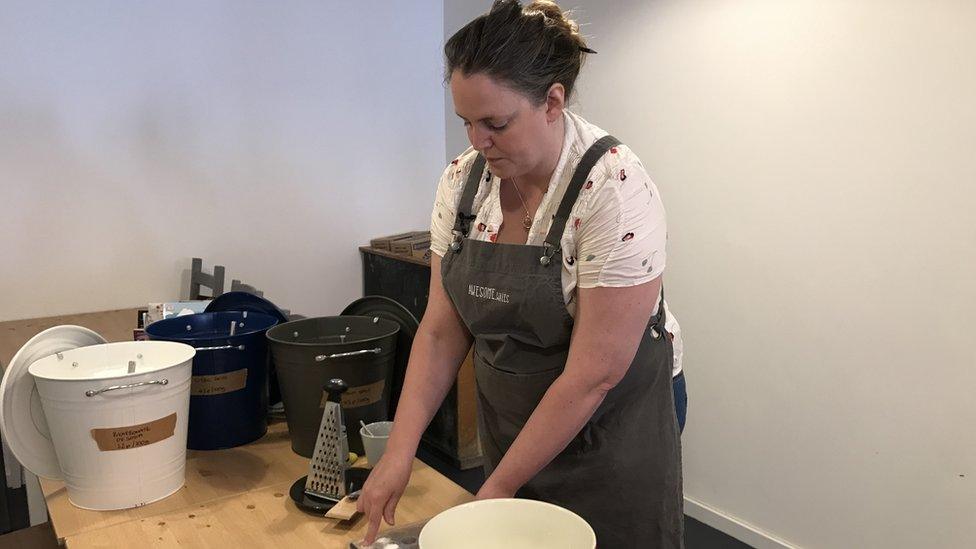
The store plans to run classes in "hacks" such as making your own dishwasher tablets
- Published5 January 2019
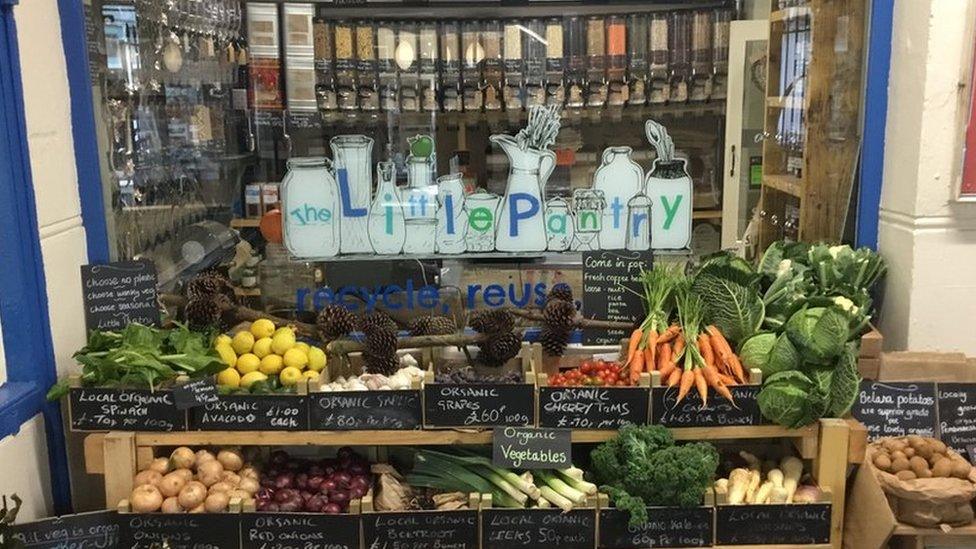
- Published9 August 2021
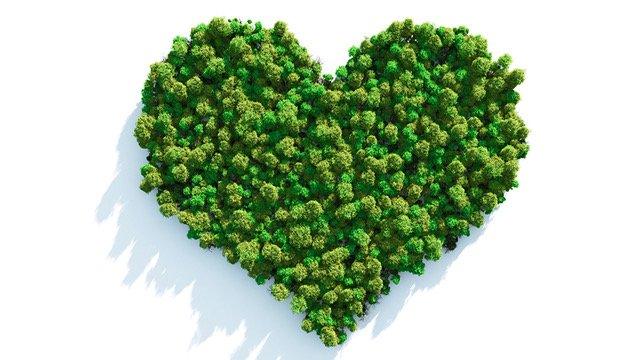
- Published8 August 2019

- Published4 April 2019
